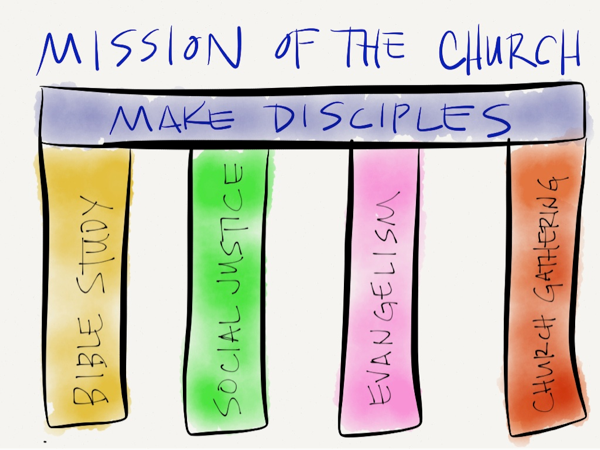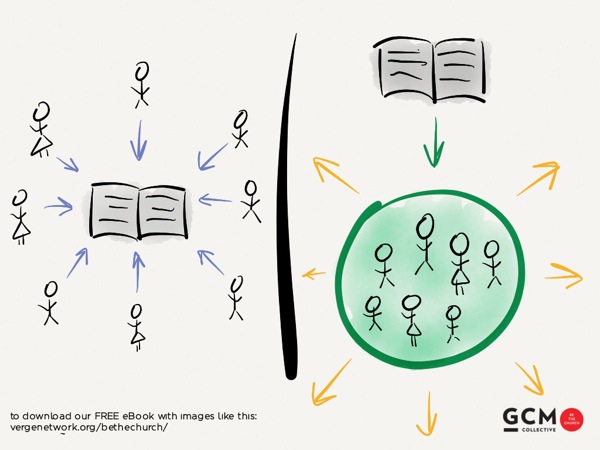This series of posts provides an overview of each of the missional community practices we foster at The Austin Stone:
- An Overview of the Practices and a Story
- Different Kinds of Gatherings
- The Family Meal
- Life Transformation Groups
- A Third Place
- Putting the Gatherings Together
—
Life Transformation Groups – Gathering as Disciples
This leads us to the second place that we gather – as disciples in Life Transformation groups.
Again, we want to judge depth by obedience, not simply knowledge, so what does that look like? What would it look like to study the Bible for obedience, not just information growth?
Obedience, for us, is being serious about obeying God’s word personally.
Going deeper happens with individual accountability to being a disciple. We tried a bunch of names for these kind of gatherings, but they all sound weird.
Finally, we just decided we’d stick with life transformation groups, or LTGs for short. Neil Cole just unpacked them for us, and to be honest, he got it right!
An LTG is a smaller group of two or three believers of the same gender that commit to meeting outside of the group meeting time. This is the place to study the Bible deeply and to be known deeply by another.
There are three primary elements to this kind of group:
- First, we want to Hear and Obey – we want to read God’s word every day, and be held accountable to what we need to DO in response
- Second, we want to Repent and Believe – we want to confess and repent of our sin and disobedience. Second, we’re going to remind one another to believe the good news of Christ’s perfect life, his atoning death, and his resurrection.
- Third, we want to Consider and Pray – we want to consider opportunities we have to share the gospel, and then pray by name individual people, not just generic groups.
The Advantages of an LTG
This weekly rhythm cultivates obedience as a disciple, and forms the backbone of missional community. It helps people go from being a consumer meeting a need to becoming a contributor to the life of a community.
Also, this kind of gathering is the basic tool of disciple-making. The beauty of an LTG is that you can do it with anybody! The LTG the basic tool to disciple a new follower of Jesus.
You can find the basic tool we use at The Austin Stone here. LTG Overview.pdf
What have you found to be effective in these kinds of groups?

